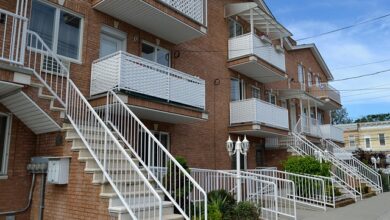What Does Renters Insurance Cover in Singapore? Key Benefits Explained

Renting a home or apartment in Singapore offers flexibility and convenience, but it also comes with risks. From theft and fire to accidental damage and liability claims, renters face many potential hazards that could disrupt their lives or lead to significant financial losses. While landlords typically have insurance to cover the building itself, their policies do not extend to tenants’ personal belongings or liabilities. That’s where renters insurance comes in—a crucial safety net designed to protect tenants and their possessions. In this article, we’ll break down what renters insurance covers in Singapore, its key benefits, and why every renter should consider purchasing a policy.
What Is Renters Insurance?
Renters insurance, also known as tenant insurance or contents insurance, is a type of policy that provides financial protection for renters against unexpected events. It covers your personal belongings, liability for accidents involving guests, and additional living expenses if your rental becomes uninhabitable due to a covered peril.
In Singapore, renters insurance is not mandatory, but it’s highly recommended—especially for those living in high-rise apartments or densely populated areas where risks like fire, water leaks, and theft are more common.
What Does Renters Insurance Cover?
Renters insurance generally includes three main components: Personal Belongings Coverage , Liability Coverage , and Additional Living Expenses (ALE) . Let’s explore each in detail.
1. Personal Belongings Coverage
This portion of the policy protects your personal property, such as furniture, electronics, clothing, jewelry, and appliances, against perils like:
- Theft : If your laptop, TV, or other valuables are stolen, renters insurance will reimburse you for their replacement cost (up to your policy limit).
- Fire and Smoke Damage : Covers items damaged or destroyed in a fire.
- Water Damage : Protects against sudden and accidental water leaks, such as burst pipes (but not flooding due to weather).
- Vandalism : If someone intentionally damages your property, your policy can help cover repair or replacement costs.
Most policies offer coverage based on the actual cash value (ACV) or replacement cost value (RCV):
- Actual Cash Value (ACV) : Reimburses you for the depreciated value of your items.
- Replacement Cost Value (RCV) : Pays for the full cost of replacing your belongings without deducting depreciation (this option usually comes with higher premiums).
2. Liability Coverage
Liability coverage protects you if you’re held responsible for injuries or property damage to others. For example:
- A guest slips and falls in your apartment, injuring themselves.
- Your pet bites someone visiting your home.
- You accidentally cause damage to the rental unit or neighboring properties (e.g., starting a kitchen fire).
Liability coverage typically includes:
- Legal defense costs if you’re sued.
- Settlement payments or court-ordered judgments up to your policy limit.
Standard liability limits range from $100,000 to $1 million, depending on your needs and budget.
3. Additional Living Expenses (ALE)
If your rented home becomes uninhabitable due to a covered peril (e.g., fire, smoke, or water damage), ALE helps cover the extra costs of temporary accommodations, meals, and other essentials while repairs are being made. This ensures you’re not left scrambling to find housing or paying out-of-pocket during an already stressful time.
What Isn’t Covered by Renters Insurance?
While renters insurance offers broad protection, there are some exclusions to be aware of. Common exclusions include:
- Flooding and Earthquakes : These natural disasters are typically not covered under standard policies. However, you may purchase additional endorsements or separate policies for flood or earthquake coverage.
- Wear and Tear : Normal deterioration of your belongings is not covered.
- High-Value Items : Expensive items like jewelry, art, or collectibles may exceed your policy’s coverage limits. Consider adding a rider or floater to insure these items adequately.
- Business Equipment : If you run a business from home, specialized commercial insurance may be needed to cover business-related equipment and liabilities.
- Intentional Acts : Damages or injuries caused deliberately by you are not covered.
Always review your policy carefully to understand its limitations and exclusions.
Key Benefits of Renters Insurance
Renters insurance offers numerous advantages beyond just protecting your belongings. Here are some of the top benefits:
- Affordable Protection
- Renters insurance is surprisingly inexpensive, with average annual premiums ranging from SGD 100 to SGD 300, depending on factors like location, coverage amount, and deductible.
- Peace of Mind
- Knowing that your possessions and finances are protected allows you to focus on enjoying your rental experience without worrying about “what ifs.”
- Liability Shield
- Provides robust protection against lawsuits or medical bills stemming from accidents involving guests or neighbors.
- Coverage Beyond Your Home
- Many policies extend coverage to your belongings even when they’re outside your residence. For instance, if your laptop is stolen from a café or your bike is vandalized in a park, renters insurance may still apply.
- Support During Displacement
- If your rental becomes unlivable due to a covered event, ALE ensures you’re not burdened with additional living costs while repairs are underway.
- Customizable Options
- You can tailor your policy to suit your specific needs, whether that means increasing liability limits, adding endorsements, or opting for replacement cost coverage.
How Much Renters Insurance Do You Need?
Determining the right amount of coverage depends on several factors:
- Value of Your Belongings
- Take inventory of your possessions and estimate their total worth. Don’t forget to include items stored in closets, basements, or garages.
- Liability Risks
- Assess your risk of being held liable for injuries or damages. If you frequently host guests or own pets, higher liability limits may be wise.
- Location
- Urban areas with higher crime rates or greater exposure to natural disasters may require more comprehensive coverage.
- Budget
- Balance affordability with adequate protection. Opt for the highest coverage limits you can comfortably afford.
A typical renters insurance policy might provide SGD 50,000–SGD 100,000 in contents coverage and SGD 100,000–SGD 1 million in liability coverage. Adjust these amounts based on your unique situation.
Tips for Maximizing Your Renters Insurance
- Create a Home Inventory
- Document your belongings with photos, videos, and receipts. This makes filing a claim easier and ensures you receive fair compensation.
- Choose Replacement Cost Over Actual Cash Value
- While RCV policies are slightly more expensive, they provide better value in the long run by covering the full cost of replacing damaged or stolen items.
- Bundle Policies
- If you already have auto insurance, ask your provider about bundling discounts for renters insurance.
- Increase Liability Limits
- For a small additional cost, you can boost your liability coverage to SGD 1 million or more, offering greater peace of mind.
- Review Your Policy Annually
- Update your coverage as your circumstances change, such as acquiring new belongings or moving to a different rental.



